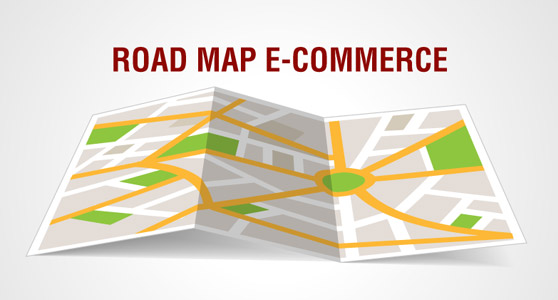Support
Support

Preparation of E-Trade Roadmap National (Roadmap E-Commerce)
Jakarta - The government decided Roadmap E-Trade Bank (Road Map E-Commerce) in the coordination meeting led by Coordinating Minister for Economic Affairs on Wednesday (10/2). The scope of e-commerce are government goods and goods to the public. "It should really be a national program that is not gawe government alone, but to encourage the private sector and the community," said Nasution.
In Coordination Meeting, which was attended by the Minister of Communication and Information Rudiantara, Trade Minister Tom Lembong, Minister of Industry Saleh Husin, Chief of Creative Economy Triawan Munaf, as well as representatives from Bank Indonesia and the Financial Services Authority.
There are three things in rakor this time, the first Determination Roadmap National e-Trade (Road Map e-commerce). The second, which was decided in the meeting was the establishment of the Steering Committee, Executive Team and the Project Management Office (PMO) e-commerce. The PMO will consist of professionals to oversee and monitor the implementation of e-commerce.
The third thing to be decided is: Preparation of a draft regulation on the e-Trade Roadmap National (Road Map e-Commerce) covering both of the above and financing.
Broadly speaking, there are seven strategic issues in the Roadmap e-commerce, namely:
1. Logistics
Utilization blueprint National Logistics System (Sislognas) to increase the speed of delivery logistics of e-commerce and reduce shipping costs. The government helps the development of outsourced e-commerce logistics facilities in particular for the development of e-commerce for SMEs, strengthening local courier company / national competitiveness.
2. Funding
Finalization of the RPP e-commerce, formed the Public Service Agency (BLU) to distribute government grants / Universal Service Obligation / government subsidies to the digital SMEs and startup e-commerce platform, the optimization of the financial institution as channeling KUR scheme providing grants for the provision of business incubators scheme providing grants that the source came from SOE CSR, equity participation schemes through venture capital, seed capital provision scheme / "foster parents" player Information and Communication Technology, policy development away fund as an alternative funding including risk management framework.
3. Consumer Protection
Building consumer confidence through regulation, protection of industry players, simplification of registration of licensing business for the perpetrators of e-commerce, developing national Payment Gateway gradually to improve service retail payments electronically (including e-commerce), the holding incubation program for startups to foster their , especially in the early stages, preparing the talent needs in order to sustain the e-commerce ecosystem.
4. Communications Infrastructure
Increased national communications infrastructure as the backbone of industrial growth of e-commerce ,.
5. Taxes
By simplifying tax obligations or rules of taxation for the perpetrators of e-commerce startup, tax incentives for investors e-commerce, and tax incentives for startup e-commerce, and equality of tax treatment in the form of an obligation to register themselves including foreign businesses.
6. Education and Human Resources
Provide education for the entire ecosystem of e-commerce, the implementation of a national awareness campaign e-commerce through online media and offline throughout Indonesia, the provision of educational e-commerce for policy makers to gain an understanding of e-commerce the appropriate role of central government and regional levels, increasing national communications infrastructure as the backbone of industrial growth of e-commerce.
7. Cyber Security
Increased awareness of online merchants and the public against cyber crimes and the perpetrators of the importance of the security of electronic transactions.
translation-not-found[latest_article_public]



